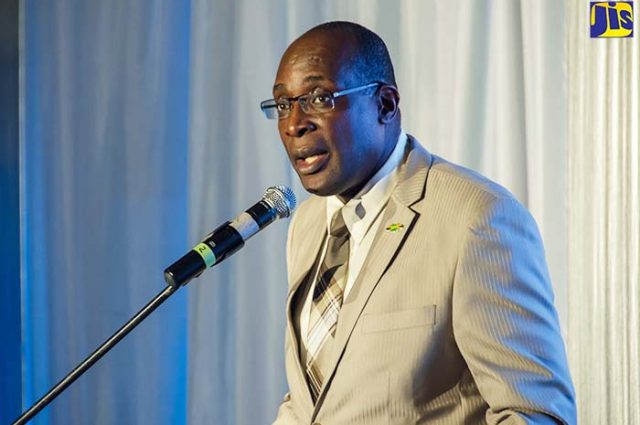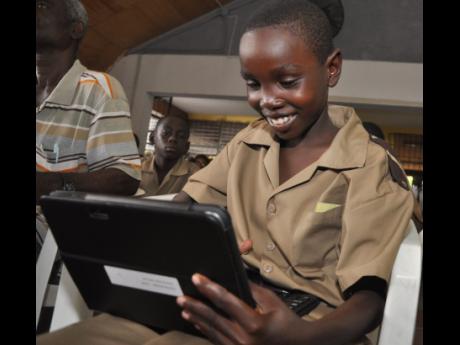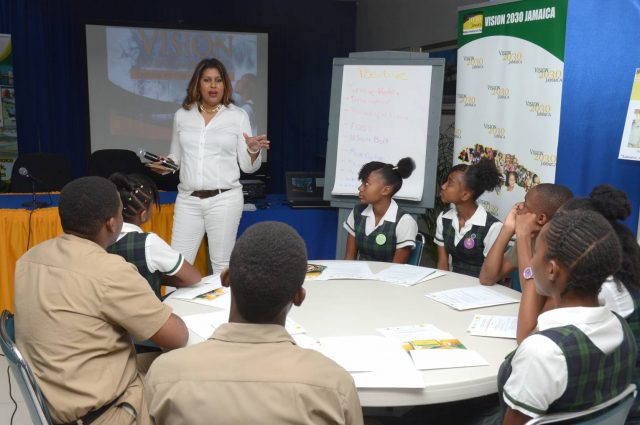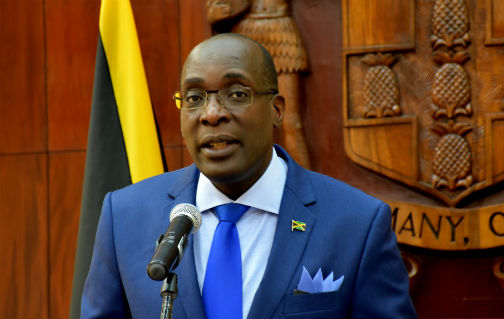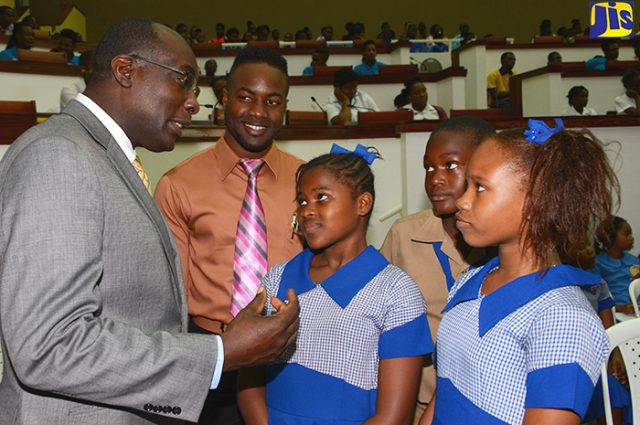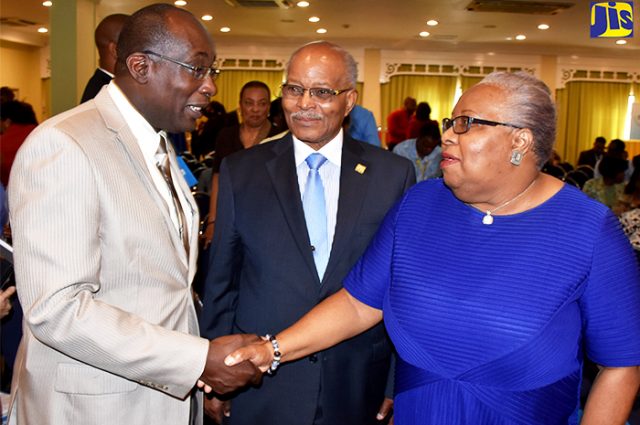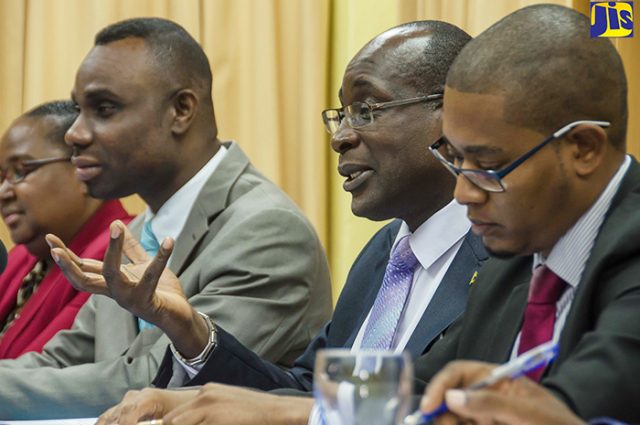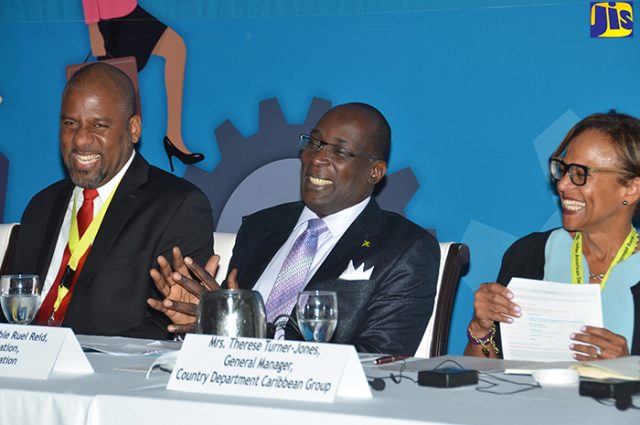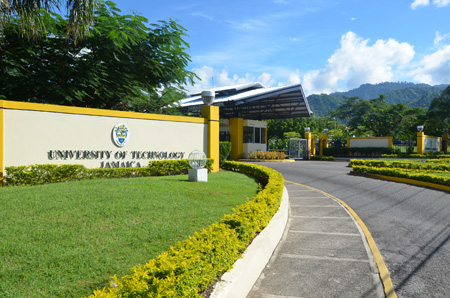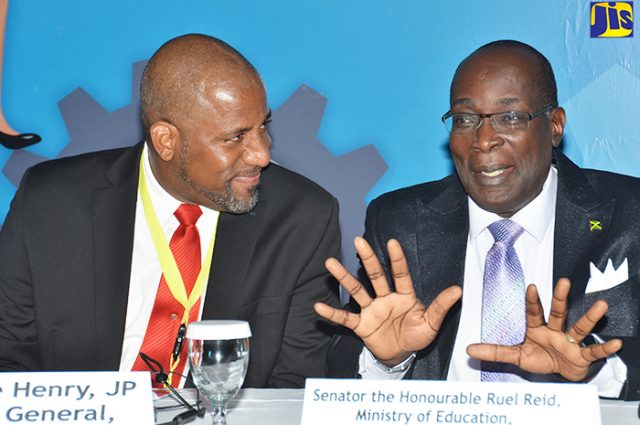JIS: Education, Youth and Information Minister, Senator the Hon. Ruel Reid, is welcoming the launch of a social enterprise study, which sheds light on how such activities enable students to develop core skills to transition from school to the workplace.
The study, commissioned by the British Council, was conducted within secondary schools across the island, in partnership with the Jamaica National Foundation, the Office of Social Entrepreneurship and the Centre for Leadership and Governance.
A social enterprise is a business that trades for a social purpose, reinvests surpluses into their social objective, and makes themselves accountable for their actions, rather than simply maximising profits for their owners and shareholders. They also deliver social as well as economic value.
Among the gamut of social enterprises in existence at high schools are: Key Clubs, Tourism Action Clubs, Girl Guides, History Clubs, Octagon Clubs, Cadet and Interact Clubs, among others.
Senator Reid, in his remarks at the launch, held at the British High Commission in New Kingston on February 15, said that, among other things, the study will help to determine the impact of social enterprises on the lives of participants and the communities in which the projects are located.
“I welcome the (study) because I believe it is important that our young people be enabled to broaden their outlook…There are multiple pathways to social advancement and indeed personal success,” he said.
He argued that the study is critical as it confirmed that students will receive real-life exposure to business and sponsors by being a part of social enterprises.
Senator Reid pointed out that such endeavours are important for education and social advancement as well as to prevent students from “falling through the cracks.”
“Social enterprises also improve access to work by ensuring that intended qualifications are relevant to employment and learning and meet the needs of learners in the economy and learning institutions,” the Minister said.
“Social enterprises also help to boost students’ résumés, to enter higher education and to boost employment prospects,” he added.
Recently, Jamaica National Foundation staged its second Social Enterprise Boost Initiative Summit at The Jamaica Pegasus hotel.
The Summit aimed to create an enabling business environment for social enterprises in Jamaica and to assist them in transitioning their grant-funded operations into a viable profit-making business.
For his part, the Foundation’s Head, Saffrey Brown, said there are huge benefits to be had from social enterprises, and welcomed the research.
Among the findings of the study, which was presented by Acting Co-Director of the Centre for Leadership and Governance, Shinique Walters, is that the funds from these initiatives are reinvested to undertake projects and will go to welfare, such as a feed the needy students programme.
Social enterprises also engender advocacy, capacity building and address social problems, among other things.
The study also makes recommendations for social enterprises in secondary schools.
CAPTION: Education, Youth and Information Minister, Senator the Hon. Ruel Reid, addresses the launch of a social enterprise study at the British High Commission in New Kingston on February 15.


